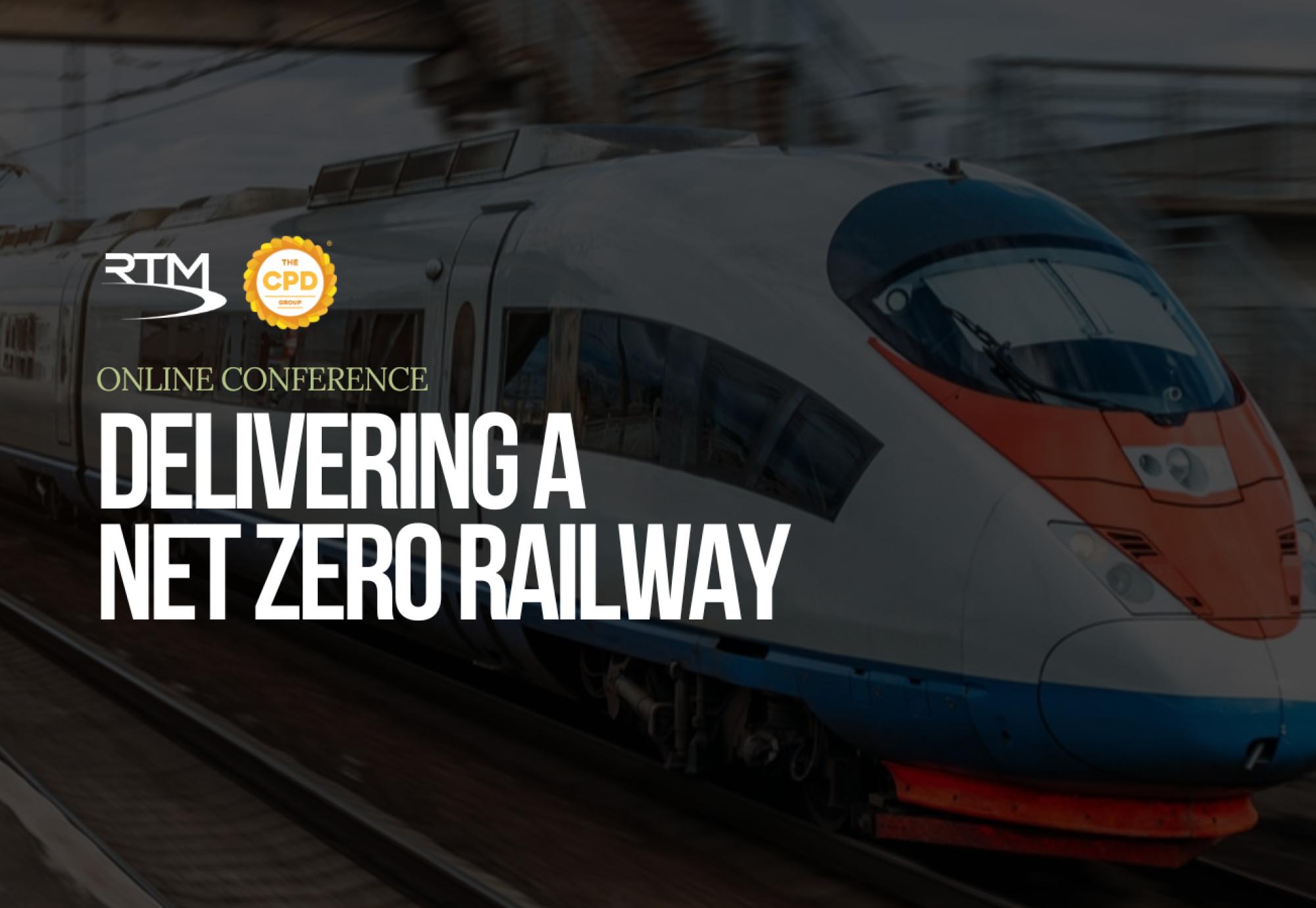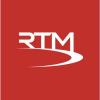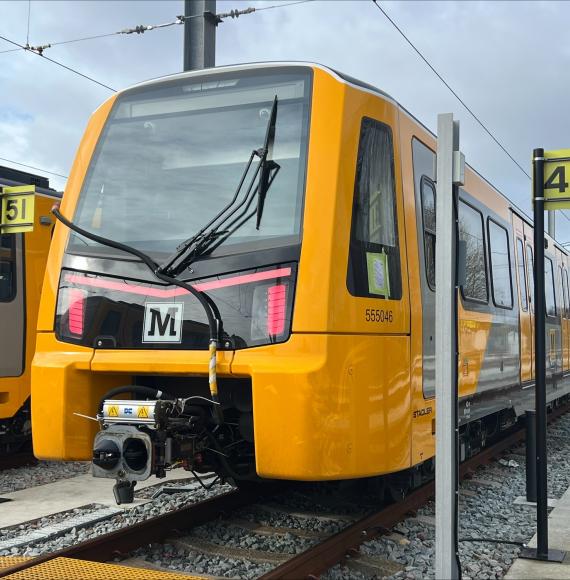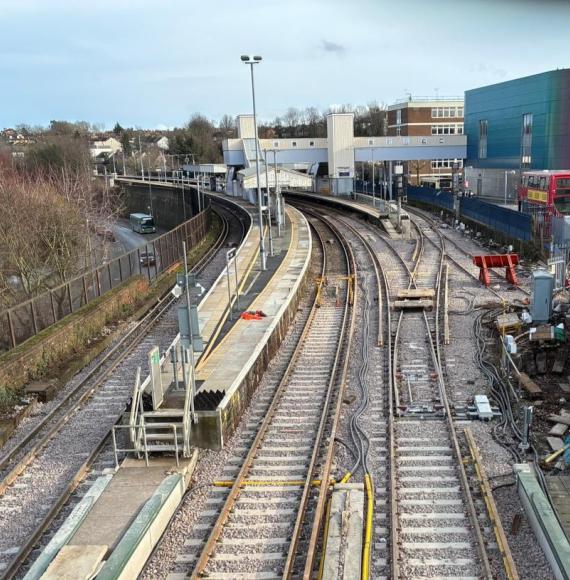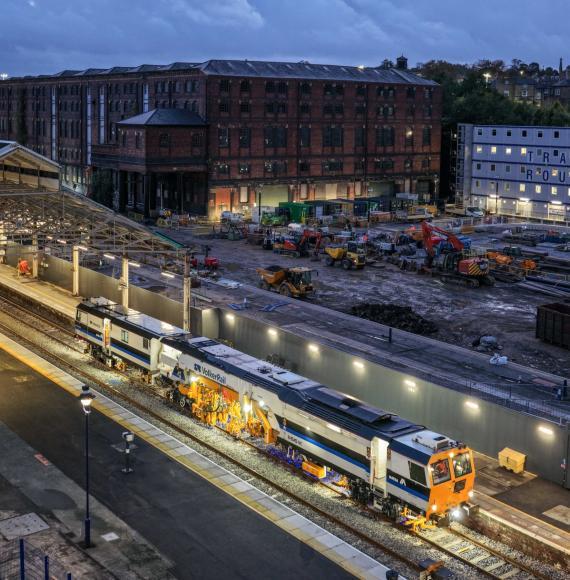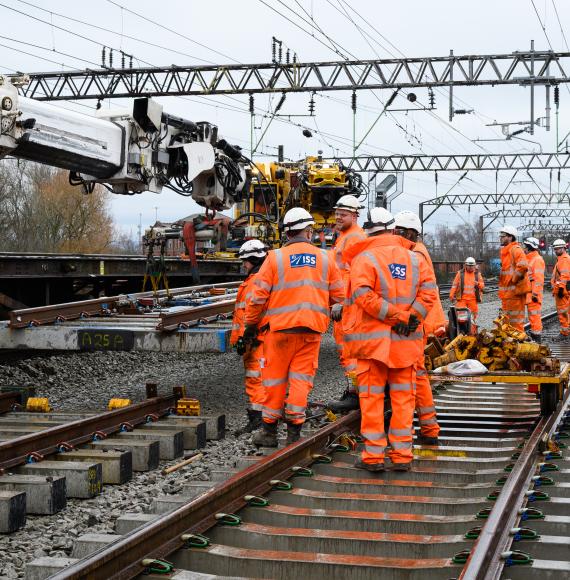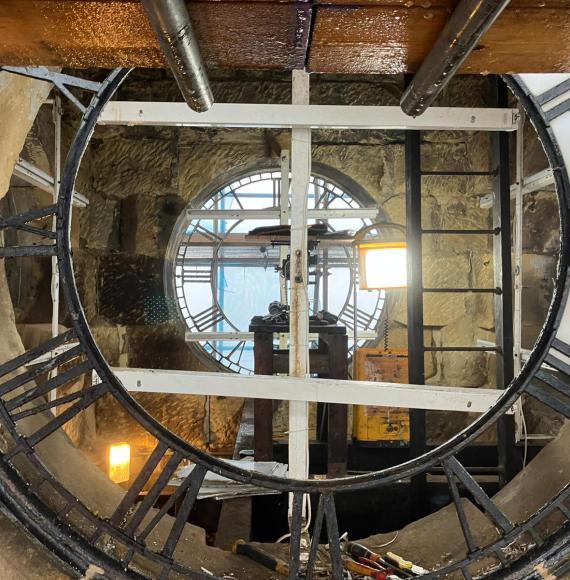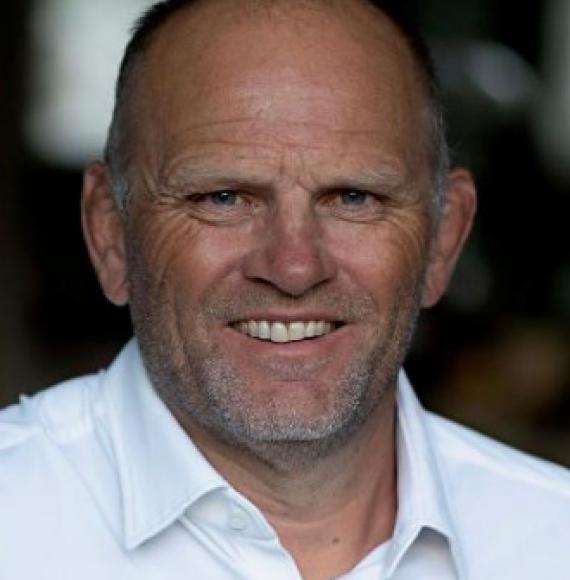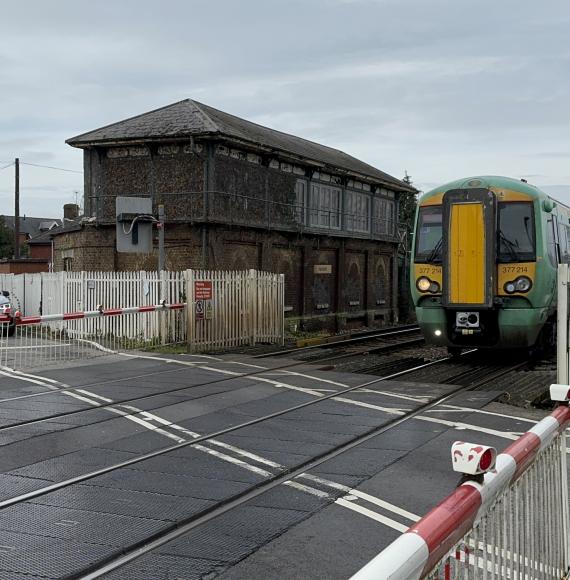This event from Rail Technology Magazine covered key topics such as biodiversity, highlighting the importance of protecting ecosystems while developing infrastructure, electrification, and showcasing advancements in reducing carbon emissions. It also explored how building in NetZero principles from the ground up can create eco-friendly operations and learn about weather resilience strategies to ensure railways withstand the impacts of climate change.
Keynote – Rachel Everard
In a world increasingly focused on sustainability, the rail industry finds itself at a pivotal moment. Rachel Everard, the Director of Sustainability at the RSSB, gave this keynote as they delve into the journey towards a net zero railway.
Rachel began by outlining rail's vital role in creating a decarbonised, connected, and inclusive society. The rail sector must not become complacent despite being responsible for only 1% of the UK's total carbon emissions. With the rise of electric vehicles and other competing transport modes, rail must continue to innovate and adapt to maintain its status as the most sustainable form of mass transport.
The Sustainable Rail Blueprint, co-created with industry stakeholders, serves as a comprehensive framework for achieving sustainability in rail. Rachel highlighted the importance of collaboration across all sectors to accelerate action and implement effective solutions. This collaborative approach is crucial, especially as the rail infrastructure faces increasing vulnerabilities due to climate change, with over a third of the network at risk of flooding by 2050.
As the keynote progressed, Rachel emphasised the need for a shift in perspective. The rail industry must focus on decarbonisation and embrace its potential to contribute positively to biodiversity and ecological health. The rail corridors can serve as vital habitats that support diverse ecosystems, making it imperative for the industry to think about its environmental footprint holistically.
With the urgency of climate action pressing down on all sectors, the rail industry has a unique opportunity to lead by example. The commitment to sustainability is no longer a fringe concern; it is becoming central to how the industry thinks, plans, and delivers.
Biodiversity Panel Discussion
This panel discussion delved into an often-overlooked aspect of our railways: their role as ecosystems that support biodiversity. With a panel of industry experts, including Dr. Neil Strong from Network Rail, David Prys Jones from HS2, Jason Brooker from Govia Thameslink Railway, and Hugh Wilson from Network Rail, we explored how railway corridors can serve as vital habitats for various species.
The discussion began with Dr. Neil Strong, who highlighted that a significant portion of railway land is covered in green spaces, which are crucial for biodiversity. With over 40,000 employees at Network Rail, biodiversity management is a collective effort, with ecologists and arboriculturists playing key roles. Hugh Wilson shared insights into the increasing focus on internal resources for biodiversity management, moving away from reliance on external contractors.
As the conversation shifted to HS2, David Prys Jones addressed the environmental concerns surrounding the project. He emphasised the importance of mitigating impacts before they occur and the extensive green assets that HS2 aims to manage, including new habitats and ecological features.
Jason Brooker discussed the challenges faced in urbanised areas where the opportunities for biodiversity are limited. His initiative, "Homes for Nature," aims to create habitats in railway stations, collaborating with community groups to install bird boxes and bee hotels.
Climate change emerges as a significant threat to vegetation along the railway network. Hugh Wilson pointed out that changing weather patterns can introduce pests and diseases, making it essential to adapt management strategies to protect biodiversity.
The panel also discussed the role of technology in monitoring and managing biodiversity. Advanced data collection methods, such as lidar and hyperspectral imaging, allow for targeted interventions, ensuring that biodiversity is preserved while maintaining safety and efficiency on the railway.
The panel expressed hope that the ongoing efforts to integrate biodiversity into railway operations will yield positive results for both the environment and the communities they serve.
Electrification Panel Discussion
The electrification of UK railways is a pressing topic in sustainable transport. We brought together a panel of experts to discuss the advances, challenges, and strategies necessary to electrify the rail network and align it with our climate goals.
Rail transport is already a lower-carbon alternative compared to private vehicles, but there is a significant need to increase the modal share of rail journeys from 1.5% to 5%. This requires not only more capacity and modern infrastructure but also a comprehensive decarbonisation strategy. Jonathan Brown from Transport for North highlighted the importance of electrification in achieving these objectives, particularly for key routes across the north of England.
However, the panel also addressed the historical challenges that have hindered progress. Gary Keenor from AktinsRealis pointed out that the UK suffers from a stop-start funding approach, treating electrification as a series of discrete projects rather than a continuous, strategic programme. This inconsistency in funding leads to skill shortages and inefficiencies, making electrification more expensive and less effective.
David Clark from the Railway Industry Association emphasised the need to shift the conversation from electrification to decarbonisation. While electrification offers long-term operational cost benefits, the upfront costs pose a challenge for government funding. He argued that a consistent policy and strategic plan are essential to maintain momentum and support the necessary infrastructure improvements.
The discussion also delved into the potential of battery trains as a complementary solution to electrification. With advancements in battery technology, a significant portion of the rail network could be powered without the need for extensive electrification. This presents an opportunity to decarbonise while also reducing capital costs.
Ultimately, the panel agreed that a long-term strategy is crucial for the future of UK railways. By establishing a clear roadmap for electrification and integrating battery technology, the rail industry can position itself as a leader in sustainable transport.
Building a Net Zero Freight Strategy – Panel Discussion
This panel tackled the pressing issue of freight transport's evolution and its pivotal role in achieving a net-zero future. With a panel of industry experts, we delved into the various alternative energy solutions that are reshaping the freight landscape, including the promising technologies of hydrogen fuel cells and battery-powered trains.
Freight transport is not just a logistical necessity; it is a cornerstone of the UK economy. As Phil Smart, assistant policy manager at the Rail Freight Group, eloquently pointed out, every one of us interacts with the freight railway daily, whether we realise it or not. The clothes we wear, the food we eat, and even the technology we use have all been transported by rail at some stage in their journey to us. This underlines the importance of rail freight in our everyday lives and the broader economic context.
The panel discussed the government's ambitious target to increase rail freight usage by 75% by 2050, highlighting the need for a shift towards more sustainable practices. With rail freight producing only a quarter of the carbon footprint compared to road transport, the case for investing in rail infrastructure is stronger than ever. Dan Fredriksson from Network Rail emphasised the need for increased awareness of existing rail services and the development of new intermodal rail freight interchanges to facilitate this transition.
Electric traction and the electrification of rail lines are crucial to overcoming the challenges faced by the freight sector. The conversation revealed that while battery technology is improving, the sheer weight of freight trains makes full electrification the most viable solution for long-distance transport. The potential for hydrogen as an alternative fuel was also explored, though the panel agreed that its current application in freight is limited and requires further development.
Innovations in monitoring and data analytics were also highlighted as key to improving the efficiency and reliability of rail freight operations. By leveraging technology to predict maintenance needs and enhance performance, the sector can reduce its environmental impact significantly.
As we navigate the complexities of decarbonisation, the panel stressed the importance of collaboration between the rail and road transport industries. They concluded by saying that by working together, they can create a more efficient and sustainable transport network that benefits everyone.
Weather Resilience Panel Discussion
In a world increasingly affected by climate change, the transport sector, particularly railways, faces significant challenges. This panel discussion delved deep into how extreme weather events are reshaping railway infrastructure and the urgent need for resilience strategies.
The panellists, Tawhida Yaacoub from Midlands Connect, Julie Gregory from Network Rail, and Sam Longman from Transport for London, discussed the real impacts of climate change on the transport network. From flooding and landslips to heatwaves, these challenges are not just theoretical; they affect daily journeys and operational efficiency.
Tawhidaa highlighted the importance of planning and proactive measures. By developing tools like the Midlands Rail and Road Operational Resilience (MIRA), stakeholders can better understand vulnerabilities in the network and implement practical adaptations. This approach not only mitigates risks but also proves to be more cost-effective than reactive measures.
Julie provided insights into Network Rail's current state of resilience, acknowledging that while improvements are underway, there is still much work to be done. Identifying key risks such as sea-level rise and flooding, Julie emphasised the importance of climate adaptation pathways. This structured approach allows for better planning and resource allocation, ensuring that the railway system can withstand future climate challenges.
Sam shifted the focus to stakeholder engagement, emphasising the need for a narrative that promotes innovation rather than doom. By framing climate adaptation as an opportunity for creating healthier, more sustainable cities, Transport for London aims to inspire action and collaboration among various stakeholders.
Throughout the discussion, the panellists agreed on one crucial point: climate change is not just an environmental issue; it is a pressing challenge that requires immediate action and collaboration across the transport sector. The conversation is not only about building resilience but also about fostering a sustainable future for public transport.
As the discussion wrapped up, it's clear that while the journey towards a net-zero railway is ambitious, it is achievable through collective effort and innovative thinking.
You can watch this event in full on our catch-up service. Just click here

